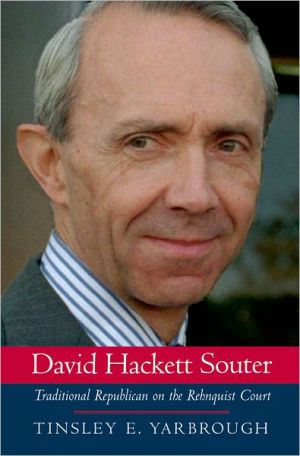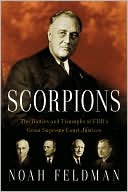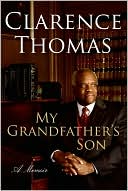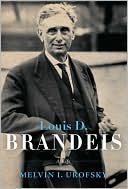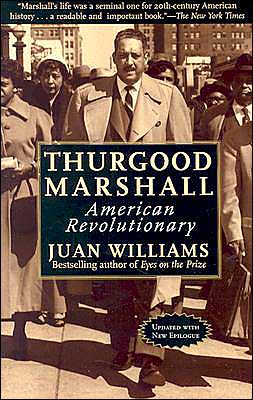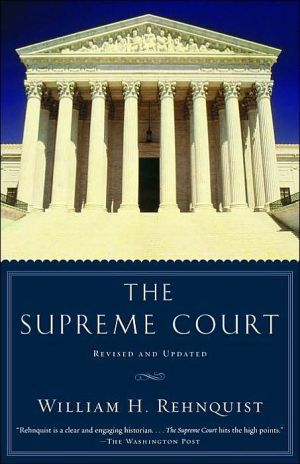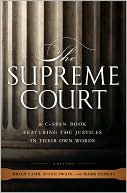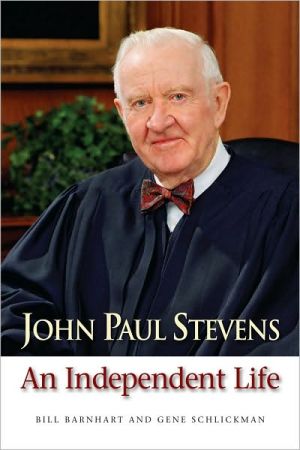David Hackett Souter: Traditional Republican on the Rehnquist Court
When the first President Bush chose David Hackett Souter for the Supreme Court in 1990, the slender New Englander with the shy demeanor and ambiguous past was quickly dubbed a "stealth candidate". Since his appointment, Souter has embraced a flexible, evolving, and highly pragmatic judicial style that embraces a high regard for precedent—even liberal decisions of the Warren and Burger Courts with which he may have personally disagreed. Ultimately, Yarbrough contends, Souter has become the...
Search in google:
When the first President Bush chose David Hackett Souter for the Supreme Court in 1990, the slender New Englander with the shy demeanor and ambiguous past was quickly dubbed a "stealth candidate". Since his appointment, Souter has embraced a flexible, evolving, and highly pragmatic judicial style that embraces a high regard for precedent—even liberal decisions of the Warren and Burger Courts with which he may have personally disagreed. Ultimately, Yarbrough contends, Souter has become the principal Rehnquist Court opponent of the originalist, text-bound jurisprudence that many of the more conservative Justices profess to champion. Sifting through Souter's opinions, papers of the Justice's contemporaries and other relevant records and interviews, esteemed Supreme Court biographer Tinsley Yarbrough here gives us the real David Souter, crafting a fascinating account of one of the heretofore most elusive Justices in the history of the Court. Publishers Weekly Little was known about either the personal life or the judicial philosophy of Souter when he was appointed to the High Court in 1990, and that remains true today. As this incisive, judicious biography points out, that's probably how the justice wants it. But Yarbrough, a professor at East Carolina University (The Rehnquist Court and the Constitution), gets to the core of Souter-and of today's political climate. From his childhood, Souter had many traditional New Englander traits-for instance, hardworking and thrifty-that he continues to this day, eschewing some of the perks afforded high court justices. Yarbrough points out that Souter developed a judicial philosophy emphasizing tradition and precedent. This made him an alluring nominee to the top bench in the wake of the Robert Bork debacle. But as Yarbrough also shows by delineating Souter's decisions, in refusing to overturn court precedent on such hot-button issues as abortion and affirmative action-and in opposing the Court's decision to end all recounts in the 2000 election-Souter's approach has made him a disappointment to conservative hard-liners. At a time when the Supreme Court is once again being remade, this biography opens up the world of one of the court's most intriguing members. (Oct. 1) Copyright 2005 Reed Business Information.
Chapter 1New England Yankee3Chapter 2New Hampshire Judge51Chapter 3"Stealth Candidate"94Chapter 4Common Law Justice147Chapter 5Constitutional Nationalist197Chapter 6Traditional Republican221Epilogue257Bibliographic Note261Notes263Index285
\ Publishers WeeklyLittle was known about either the personal life or the judicial philosophy of Souter when he was appointed to the High Court in 1990, and that remains true today. As this incisive, judicious biography points out, that's probably how the justice wants it. But Yarbrough, a professor at East Carolina University (The Rehnquist Court and the Constitution), gets to the core of Souter-and of today's political climate. From his childhood, Souter had many traditional New Englander traits-for instance, hardworking and thrifty-that he continues to this day, eschewing some of the perks afforded high court justices. Yarbrough points out that Souter developed a judicial philosophy emphasizing tradition and precedent. This made him an alluring nominee to the top bench in the wake of the Robert Bork debacle. But as Yarbrough also shows by delineating Souter's decisions, in refusing to overturn court precedent on such hot-button issues as abortion and affirmative action-and in opposing the Court's decision to end all recounts in the 2000 election-Souter's approach has made him a disappointment to conservative hard-liners. At a time when the Supreme Court is once again being remade, this biography opens up the world of one of the court's most intriguing members. (Oct. 1) Copyright 2005 Reed Business Information.\ \ \ \ \ Library JournalYarbrough (political science, East Carolina Univ.; The Rehnquist Court and the Constitution) analyzes the life, career, and jurisprudence of one of the Rehnquist Court's most intriguing justices, whose regard for precedent and "settled law" has driven him in a decidedly different direction than other Reagan-Bush appointees. The author portrays Souter's upbringing in small-town New England and his education at Harvard Law School, where his independence became clear as he eschewed rarefied social circles and counseled students instead of writing for the law review. Upon graduation, he chose raising pigs over making money, joining a small firm near his New Hampshire farm-a decision that reflects his approach to the law. Since the early 1990s, his High Court opinions have moved left on social issues while remaining generally conservative in criminal procedure cases. Yarbrough sees the Supreme Court as a stabilizing force in society and helps readers understand how it addresses hot-button social issues. His book is illuminating for anyone wishing to follow current Supreme Court confirmation issues. Highly recommended across a wide range of collections: academic, public, and legal.-Philip Y. Blue, New York State Supreme Court Criminal Branch Law Lib., First Judicial District Copyright 2005 Reed Business Information.\ \
